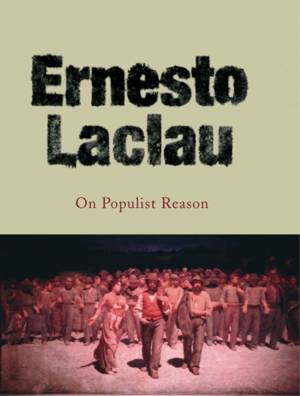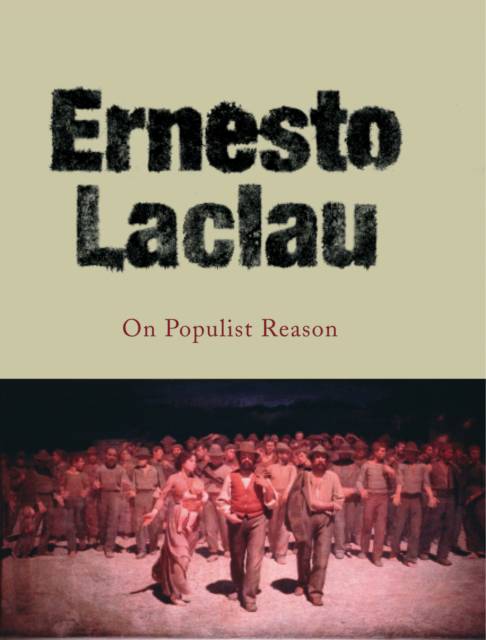
- Afhalen na 1 uur in een winkel met voorraad
- Gratis thuislevering in België vanaf € 30
- Ruim aanbod met 7 miljoen producten
- Afhalen na 1 uur in een winkel met voorraad
- Gratis thuislevering in België vanaf € 30
- Ruim aanbod met 7 miljoen producten
Zoeken
Omschrijving
In this highly original work Ernesto Laclau continues the philosophical and political exploration initiated in Hegemony and Socialist Strategy. Here he focuses on the construction of popular identities and how "the people" emerge as a collective actor. Skillfully combining theoretical analysis with a myriad of empirical references from numerous historical and geographical contexts he offers a critical reading of the existing literature on populism, demonstrating its dependency on the theorists of "mass psychology" such as Taine and Freud. He demonstrates the relation of populism to democracy and to the logic of representation, and differentiates his approach from the work of Žižek, Hardt and Negri, and Ranciere. This book is essential reading for all those interested in the question of political identities in present-day societies.
Specificaties
Betrokkenen
- Auteur(s):
- Uitgeverij:
Inhoud
- Aantal bladzijden:
- 276
- Taal:
- Engels
Eigenschappen
- Productcode (EAN):
- 9781844671861
- Verschijningsdatum:
- 17/09/2007
- Uitvoering:
- Paperback
- Formaat:
- Trade paperback (VS)
- Afmetingen:
- 147 mm x 209 mm
- Gewicht:
- 344 g

Alleen bij Standaard Boekhandel
+ 40 punten op je klantenkaart van Standaard Boekhandel
Beoordelingen
We publiceren alleen reviews die voldoen aan de voorwaarden voor reviews. Bekijk onze voorwaarden voor reviews.











